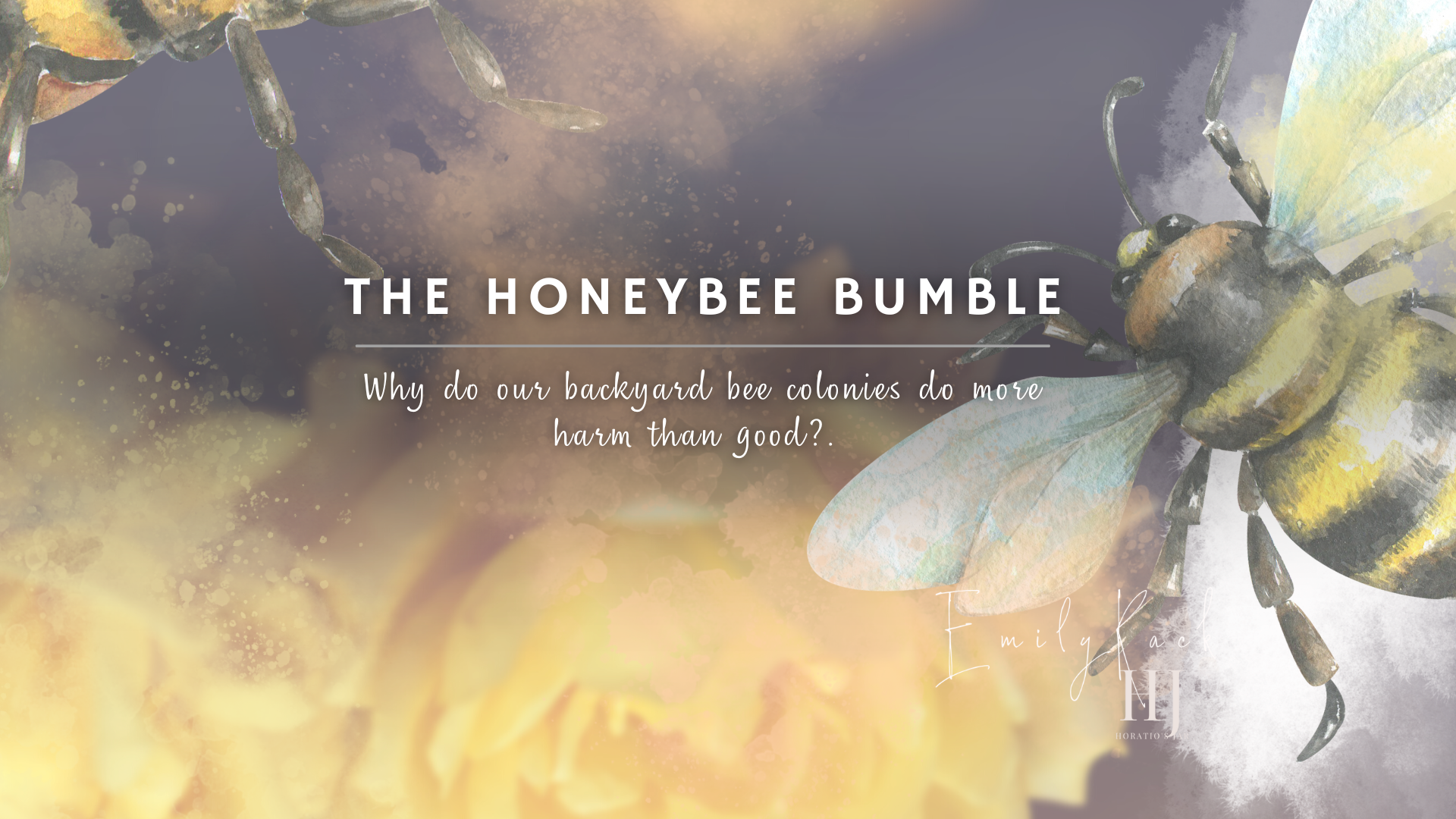Published by: Digital Schools
The Honeybee Bumble - The backyard beehive must go.
The honeybee symbolises industry, abundance, nature and positivity, and we recently immortalised it by minting a two-dollar coin in its honour.
The honey bee has undoubtedly proven itself dynamic and productive. Its ability to adapt and thrive made agriculture and multi-billion dollar industry.
But the honeybee is not the hero we thought it to be. The honeybee and mono-culture farming has catalysed the mass extinction of native insects, plants and animals worldwide.

Mass extinction worldwide is pinned to the homogenised use of the honeybee as the primary pollinator in mono-culture food production.
The honeybee, a native to Asia, Europe and Africa, was shipped here by the Europeans when they first invaded the great southern land.
The early settlers missed their sweet honey and set about domesticating the industrious bee, which today is responsible for creating 30,000 tonnes of honey each year and supporting the $14.2 billion annual agricultural industry.
For the first time, Australia has been hit with a parasite that threatens the collapse of fresh-food production. If the honeybee dies, so do we.
Is that the truth?



Australia faces 'Agricultural Crisis'.
There is mass panic in the country as we speak. A nasty pest called the varroa mite has infected the 65,000 bee colonies used in crop pollination. Beekeepers are forced to exterminate their hives to protect against the mite’s spread.
The fear of industry collapse has us all concerned about the future of food production in Australia. A vast proportion of the fresh produce we eat comes from mono-culture farms that can only be propagated with the help of the European honeybee.
The problem is that saving the honeybee to protect mass agriculture might be a severe oversight in stopping global ecological collapse. The honeybee is why insects and native pollinators, plants and animals go extinct. And the honeybee, although the key to mass food production, could also be our undoing.

“They’re important for agriculture, but they’re not so good for the environment”.
https://www.scientificamerican.com/article/the-problem-with-honey-bees/

We are saving the wrong bee.
The media has revved up worldwide about bee die-offs and the impact on our food production. The warnings have heightened our awareness of our reliance on the bee for survival. We have unwittingly exacerbated the global ecological crisis in what we believe to be a supportive move in protecting agriculture and the environment by installing honeybee hives in our backyards.
The backyard bee hive is not a conservation practice. It is a contributing factor to ecological collapse. The European honeybee is an introduced species in our country, and like the cane toad, it has turned out to be another massive bumble.


